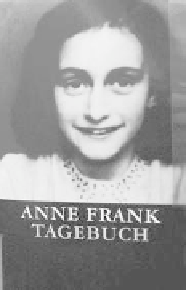Travel Reference
In-Depth Information
a parking lot by a mentally troubled man who disagreed with
his politics (though the assassin's full motives remain unclear).
Dutch people were stunned by the violence, the kind of thing
they thought only happened in America. Fortuyn's controver-
sial legacy seems to be that his outspokenness broke taboos
of political correctness and opened the floodgates of debate
about these touchy issues.
On the morning of November 2, 2004, the great-grand-
nephew of Vincent van Gogh was bicycling past Amsterdam's
Oosterpark on his way to work. Theo van Gogh was a well-known
filmmaker who'd recently released a controversial film about
women and Islam. A Dutch citizen of Muslim descent shot Van
Gogh, then stabbed a letter into his dead body threatening to
harm the film's screenwriter as well.
The screenwriter for Van Gogh's film was Ayaan Hirsi Ali,
who has become the most recent lightning rod for Western/
Muslim controversy. Born a Muslim in Somalia, she emigrated to
the Netherlands, where she became a member of Parliament and
an outspoken critic of Islam and its treatment of women. (She
also gained notoriety for gaining her citizenship under false pre-
tenses.) Hirsi Ali currently lives with the threat of violence, under
police protection provided by the Dutch government.
Whatever happened to peaceful, tolerant, quaint old
Amsterdam? That's what the Dutch want to know. The Muslim
immigration issue has forced the Dutch to confront a difficult
paradox—how to be tolerant of what they perceive to be an intol-
erant culture.
• Brussels' Upper Town buildings and boulevards
• Brussels' Galeries Royales St. Hubert and BELvue Museum
• Chocolate
1900s-2000s—Invasions by Germans,
Hippies, and Immigrants
Belgium is a major battleground in both
World Wars. Holland, neutral in World
War I, suffers brutal occupation under
the Nazis in World War II. After the
war, Brussels becomes the center of the
budding movement toward European
economic unity. In Amsterdam, postwar
prosperit y and a tolerant atmosphere
in the 1960s and 1970s make it a global
magnet for hippies, freaks, and your
co-authors. In the 1970s and 1980s,
Amsterdam and Brussels are flooded with



















